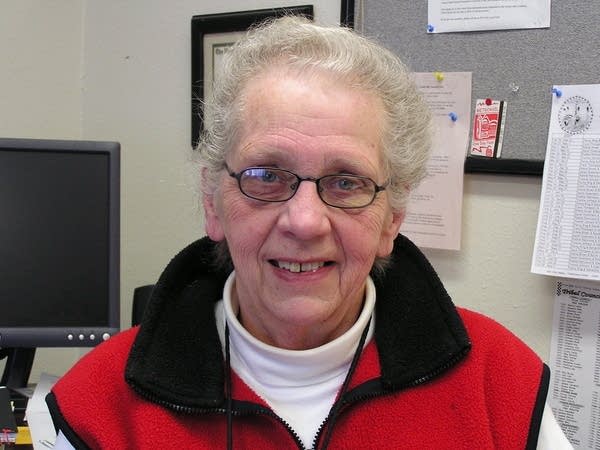Beltrami County squabbles with Red Lake over child protection funding

Beltrami County is obligated to pay for foster care and child protection cases on the Red Lake reservation. The county stopped making those payments last December, when a funding agreement between the two governments broke down. The squabble has forced the tribe to cover the costs on its own.
Sandra Parsons, director of Red Lake Family and Children's Services, says so far reservation kids are still getting the services they need. But she says the tribe's money has run out.
Parsons say that means foster parents, treatment centers and others who provide children's services aren't getting paid.
"We've completely used up our Bureau of Indian Affairs foster care funds," says Parsons. "Those were gone the end of August. We've got providers off reservation who we work with who are not being paid, and their patience is getting a little thin, to say the least."
Create a More Connected Minnesota
MPR News is your trusted resource for the news you need. With your support, MPR News brings accessible, courageous journalism and authentic conversation to everyone - free of paywalls and barriers. Your gift makes a difference.
"We have a large disproportionate number of American Indian children in the child welfare system, and our outcomes for those children aren't very good."
The relationship between counties and Indian tribes is complex. Counties are responsible for child protection programs on the reservation. So for instance, Beltrami County administers the programs and pays the bill. Then the county is reimbursed with state and federal money.
County officials complain the reimbursement doesn't always cover the whole cost. But when Red Lake pulled out of the agreement with the county, the reimbursement payments stopped coming and the county got nothing.
For years, Beltrami County and the tribe had an unusual agreement. It basically said the county was responsible for child placement cases eligible for federal reimbursement under a program called Title 4-E. Cases that didn't qualify for federal dollars were paid for by the tribe.
But state officials say counties are legally obligated to pay for all out-of-home placement costs, not just those that qualify for Title 4-E. Tribal leaders at Red Lake decided they were getting a raw deal. Last November, the tribe backed out of the agreement. It left the county unable to get federal reimbursement. That's when the county stopped paying for Red Lake child protection cases.
The state is now taking legal action against Beltrami County. The county was notified in an Oct. 12 letter from Department of Human Services Commissioner Cal Ludeman.
"The Department will commence legal proceedings under Minnesota Statutes...," Ludeman stated. "We will submit an initial group of requests for fair hearings, with more to come until the county fully complies with the law. While I appreciate the county's budget concerns, the department has a legal responsibility to ensure that vulnerable children receive the benefits to which they are entitled by law."
County officials met behind closed doors this week. They declined to comment for this story. Beltrami County Administrator Tony Murphy said officials planned to draft a letter to the Red Lake Tribal Council seeking some sort of resolution.
Chuck Johnson, assistant commissioner of Children and Family Services for the Minnesota Department of Human Services, says the now terminated agreement between Beltrami County and Red Lake was a bad arrangement for the tribe.
"That's an agreement that in a sense worked in favor of the county, because there's no particular reason for the tribe to be in that agreement under state law," says Johnson. "So certainly from a tribal perspective, they were within their rights to revisit that agreement and decide that it wasn't in their best interest."
Child placement costs over the past few years have skyrocketed in Beltrami County. Out-of-home placement costs for children on the Red Lake reservation account for nearly 70 percent of the county's child placement budget.
Some county officials have complained that since Red Lake is a sovereign nation, its residents don't pay property taxes. They say that leaves off-reservation taxpayers holding the bag.
Both sides are interested in a radical change in the funding structure -- one that would eliminate Beltrami County as the middleman. Red Lake would prefer to deal directly with the state or federal government for its child welfare needs.
Minnesota has a pilot project that's moving toward that concept, where the state is working with the Leech Lake and White Earth reservations. The goal is for those tribal governments to manage their own child welfare needs and get funding directly from the state.
Johnson says the Department of Human Services project may ultimately provide better services for American Indian kids.
"We have a large disproportionate number of American Indian children in the child welfare system, and our outcomes for those children aren't very good," says Johnson. "So we're exploring to try to find ways of achieving better outcomes, and believing that if we can help the tribes develop their capacity to deliver services, it will have a more culturally competent service and hopefully better outcomes for kids."
A direct relationship between Red Lake and the state would require legislative approval. In the meantime, Sandra Parsons of Red Lake's Family and Children's Services says she just wants to make sure kids are taken care of.
"It's just utterly ridiculous," says Parsons. "I just can't get my head around the idea that people are arguing over what to do for and with children, particularly those children who are very seriously at risk of harm."
For now, at-risk kids at Red Lake are getting the services they need from the tribe. State officials say they'll try to get Beltrami County to resume paying for those services. If that doesn't work, the issue could end up in the courts.
